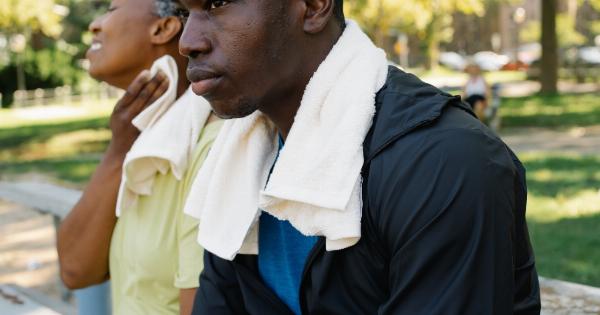With the arrival of summer comes a host of outdoor activities and opportunities to enjoy the sunny weather. However, along with these pleasant experiences, the summer season can also bring about the risk of common diseases.
By being aware of these illnesses and taking necessary preventive measures, we can ensure a healthy and enjoyable summer for ourselves and our loved ones. In this article, we will discuss some of the most prevalent summer diseases, their causes, symptoms, prevention, and treatment options.
Sunburn
One of the most common ailments during the summer is sunburn. Prolonged and unprotected exposure to the sun’s ultraviolet (UV) rays can damage the skin, leading to redness, pain, and peeling.
To prevent sunburn, it is crucial to wear protective clothing, apply sunscreen with a high sun protection factor (SPF), and seek shade during the peak hours of sun intensity. In case of sunburn, applying aloe vera gel or using over-the-counter hydrocortisone creams can provide relief and promote healing.
Heatstroke and Dehydration
High temperatures combined with excessive perspiration can increase the risk of heatstroke and dehydration.
Heatstroke occurs when the body’s internal temperature rises to dangerous levels, leading to symptoms such as a rapid heartbeat, dizziness, nausea, and even loss of consciousness. To avoid heatstroke, it is important to stay well-hydrated by drinking plenty of water and avoiding excessive exposure to the sun during peak hours. If symptoms of heatstroke are observed, immediate medical attention should be sought.
Dehydration, on the other hand, can occur when the body loses more fluids than it takes in. It can lead to fatigue, dizziness, dry mouth, and decreased urine output.
To prevent dehydration, it is essential to drink water regularly, especially when engaging in physical activities or spending time outdoors. Consuming electrolyte-rich fluids and avoiding alcohol and caffeinated beverages can also help maintain proper hydration levels.
Foodborne Illnesses
Summertime often involves outdoor gatherings and picnics, making it necessary to be cautious about food safety. Bacteria thrive in warm environments, and improper handling or storage of food can result in foodborne illnesses such as salmonella or E.
coli infections. It is crucial to separate raw and cooked foods, refrigerate perishable items promptly, and ensure thorough cooking of meats.
Additionally, proper hand hygiene and cleaning of utensils and food preparation surfaces are vital in preventing the spread of harmful bacteria.
Swimmer’s Ear
Swimming is a favorite summer activity, but spending time in the water can increase the risk of developing swimmer’s ear.
This condition occurs when water remains trapped in the ear canal, providing a favorable environment for bacterial or fungal growth. Symptoms include ear pain, swelling, itching, and discharge. To prevent swimmer’s ear, it is advisable to use earplugs while swimming and dry the ears thoroughly after water exposure.
Additionally, tilting the head to each side and gently pulling on the earlobe can assist in draining any water that may have entered the ear.
Insect Bites and Stings
The warm weather also brings forth an abundance of insects and the potential for bites and stings. Mosquitoes, ticks, bees, and wasps are common culprits.
Insect bites can cause itching, redness, and swelling, while bee or wasp stings can result in more severe allergic reactions. To prevent insect bites, it is advisable to wear light-colored clothing, use insect repellents containing DEET, and avoid areas with standing water.
If bitten or stung, it is important to wash the affected area with soap and water, apply a cold compress, and use over-the-counter antihistamines or topical creams to alleviate discomfort.
Heat Rash
Heat rash, also known as prickly heat, occurs when sweat ducts become blocked, leading to small, itchy bumps on the skin. This condition is particularly common in hot and humid weather.
To prevent heat rash, it is essential to stay cool and dry by wearing lightweight and breathable clothing, using fans or air conditioning, and taking cool showers. Calamine lotion or over-the-counter hydrocortisone creams can provide relief from itching and irritation.
Allergic Reactions
Summer brings a variety of allergens, such as pollen, dust mites, and mold spores. Allergic reactions can cause symptoms such as sneezing, itchy eyes, runny nose, and asthma exacerbations.
To reduce exposure to allergens, it is advisable to keep windows closed during peak pollen times, use air purifiers, and regularly clean bedding and upholstery. In case of allergic reactions, over-the-counter antihistamines, nasal sprays, or prescription medications can help alleviate symptoms. Severe allergic reactions require immediate medical attention.
Waterborne Illnesses
Recreational water activities, such as swimming in lakes, rivers, or pools, may put individuals at risk of waterborne illnesses like gastrointestinal infections.
Water contaminated with bacteria, viruses, or parasites can cause symptoms such as diarrhea, vomiting, fever, and abdominal pain. To prevent waterborne illnesses, it is important to swim in clean and well-maintained pools, avoid swallowing water, and shower before and after swimming.
When swimming in natural bodies of water, it is advisable to check water quality reports and be mindful of any warnings or advisories.
Heat Exhaustion
Heat exhaustion is a condition that occurs due to prolonged exposure to high temperatures. It is characterized by heavy sweating, weakness, dizziness, headaches, and nausea. If not addressed promptly, heat exhaustion can progress to heatstroke.
To prevent heat exhaustion, it is crucial to stay hydrated, avoid strenuous activities during peak heat hours, and take frequent breaks in shaded or air-conditioned areas. Resting in a cool environment and replenishing electrolytes with rehydration solutions can help in the treatment of heat exhaustion.
Cholera
In certain regions, summer brings an increased risk of cholera outbreaks. Cholera is an infectious disease caused by the consumption of food or water contaminated with the bacterium Vibrio cholerae. It leads to severe diarrhea, vomiting, and dehydration.
Proper sanitation and hygiene, including handwashing and safe water sources, are essential in preventing cholera. In some cases, cholera vaccines may also be recommended for individuals traveling to high-risk areas.
Conclusion
As summer approaches, it is crucial to be aware of the common diseases that can occur during this time and take necessary precautions to prevent them.
By following the guidelines mentioned above, such as wearing sunscreen, staying hydrated, practicing food safety, and employing preventive measures against insect bites and waterborne illnesses, we can enjoy a safe and healthy summer season. Remember, early recognition of symptoms and appropriate treatment is crucial for a speedy recovery. Stay informed, stay safe, and make the most of this beautiful season!.






























